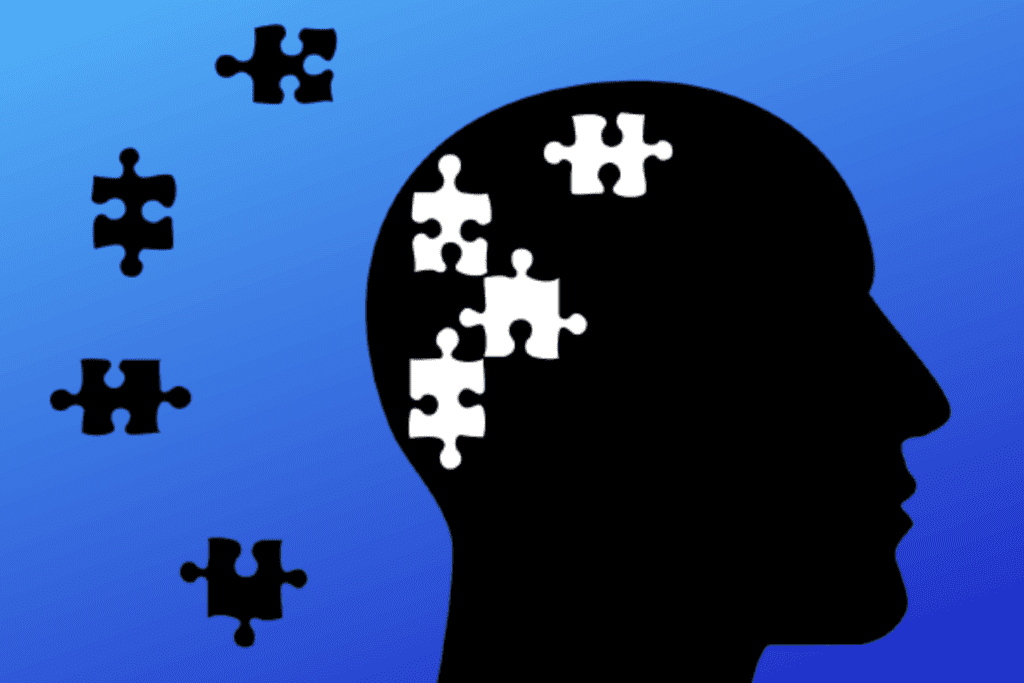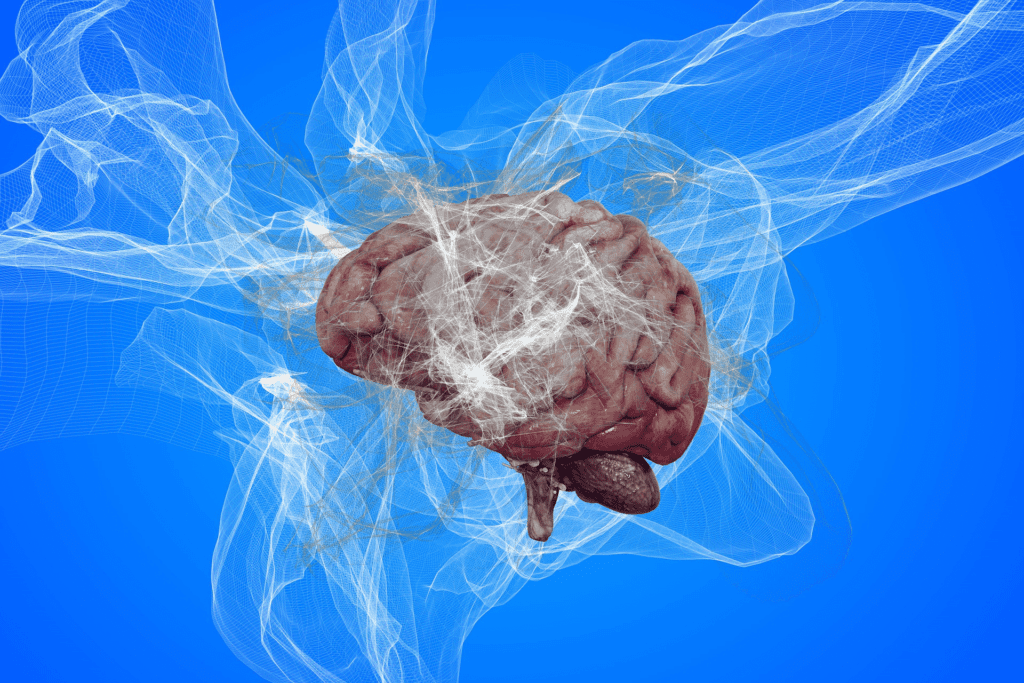We sometimes add products that we believe may be beneficial to our readers. We may receive a small commission if you purchase using the links on this page. Read our affiliate disclaimer
What is Anxiety Disorder?- Anxiety disorder is a mental health condition characterized by excessive, persistent, and uncontrollable feelings of fear, worry, and apprehension.
Table of Contents
TogglePeople with an anxiety disorder may experience intense and overwhelming feelings of nervousness, panic, and tension, which can interfere with their daily activities and quality of life.
Generalized anxiety disorder (GAD), panic disorder, social anxiety disorder, and certain phobias are a few examples of anxiety disorders. The symptoms of anxiety disorder can be physical, emotional, and behavioral and can vary from person to person.
Causes of anxiety disorder can be complex and can involve genetic, environmental, and psychological factors. Treatment for anxiety disorder typically involves a combination of psychotherapy, medication, and lifestyle changes.

Difference Between Anxiety and Anxiety Disorder
Anxiety is a normal and common emotion that we all experience from time to time. It is a natural response to stress, danger, or uncertainty, and can help us stay alert and focused in challenging situations. For example, feeling anxious before a job interview or a public speaking engagement is a common experience for many people.
Anxiety disorder, on the other hand, is a mental health condition that involves persistent and excessive feelings of fear, worry, and apprehension that are difficult to control and interfere with daily life. People with anxiety disorder may experience intense and frequent episodes of anxiety, even when there is no apparent threat or danger.
While anxiety is a normal and healthy emotion, an anxiety disorder can be debilitating and affect a person’s ability to function normally in their daily life. It can cause physical symptoms such as rapid heartbeat, sweating, and trembling, as well as psychological symptoms such as difficulty concentrating, restlessness, and irritability.
Types of Anxiety Aisorder
Anxiety disorders are classified into different types, each with its own set of symptoms and characteristics. The following types of anxiety disorders are the most commonly seen.
Generalized Anxiety Disorder (GAD)
This type of anxiety disorder is characterized by persistent and excessive worry and fear about everyday events and activities. People with GAD may worry excessively about things like work, school, health, and relationships.
Social Anxiety Disorder (SAD)

This type of anxiety disorder involves an intense fear of social situations and interactions. People with SAD may be afraid of being judged or criticized by others and may avoid social situations as a result.
Specific Phobias
This type of anxiety disorder involves intense fear of specific objects or situations, such as heights, spiders, or flying.
Obsessive-Compulsive Disorder (OCD)
This type of anxiety disorder involves persistent and intrusive thoughts (obsessions) and repetitive behaviors (compulsions) that are aimed at reducing anxiety.
Post-Traumatic Stress Disorder (PTSD)
This type of anxiety disorder can develop after experiencing or witnessing a traumatic event, such as a natural disaster, war, or physical assault. Symptoms of PTSD can include flashbacks, nightmares, and avoidance of reminders of the traumatic event.
Note: It is important to note that anxiety disorders can vary in severity and may co-occur with other mental health conditions. Seeking help from a mental health professional is important for accurate diagnosis and appropriate treatment.
Anxiety Disorder vs. Generalized Anxiety Disorder
Generalized anxiety disorder (GAD) is a type of anxiety disorder, but not all anxiety disorders are GAD. GAD is characterized by persistent and excessive worry and fears about everyday events and activities.
People with GAD may worry excessively about things like work, school, health, and relationships, even when there is no apparent reason to worry.
Other types of anxiety disorders include panic disorder, social anxiety disorder, specific phobias, obsessive-compulsive disorder (OCD), and post-traumatic stress disorder (PTSD). Each of these disorders has its unique symptoms and characteristics.
While GAD is a type of anxiety disorder, it is important to note that not all anxiety is classified as a disorder. Anxiety is a normal and healthy emotion that we all experience from time to time, and can even be helpful in certain situations. However, when anxiety becomes excessive and persistent and interferes with daily life, it may be a sign of an anxiety disorder.
Note: If you are experiencing persistent and excessive anxiety that is interfering with your daily life, it is important to seek help from a mental health professional. They can provide an accurate diagnosis and appropriate treatment for your specific symptoms and needs.
Symptoms of Anxiety Disorder

The symptoms of anxiety disorder can vary depending on the type of disorder but generally include a combination of physical, emotional, and behavioral symptoms. Anxiety disorder symptoms include:
Excessive Worry and Fear
Feeling anxious is a normal part of life, but people with anxiety disorder experience excessive worry and fear that is out of proportion to the actual situation. They may worry about things that most people would not find troubling or worry about many things at once, leading to a sense of being overwhelmed.
Feeling Restless or on Edge
People with an anxiety disorder may feel restless or agitated, finding it difficult to sit still or relax.
Fatigue or Tiredness
Anxiety can be physically and emotionally exhausting, leading to feelings of fatigue or tiredness.
Difficulty Concentrating or Focusing
Anxiety can make it difficult to concentrate or focus on tasks, leading to difficulties at work or school.
Irritability
People with an anxiety disorder may feel irritable or easily frustrated, especially when feeling overwhelmed or anxious.
Muscle Tension or Soreness
Anxiety can cause physical symptoms such as muscle tension or soreness, leading to feelings of discomfort and pain.
Rapid Heartbeat or Heart Palpitations
Anxiety can cause a rapid heartbeat or heart palpitations, leading to feelings of panic and fear.
Shortness of Breath or Hyperventilation
Anxiety can cause difficulty breathing, leading to feelings of panic and fear.
Sweating or Tembling
Anxiety can cause physical symptoms such as sweating or trembling, leading to feelings of discomfort and embarrassment. Gastrointestinal problems, such as nausea or diarrhea: Anxiety can affect the digestive system, leading to gastrointestinal problems such as nausea or diarrhea.
Insomnia or Difficulty Sleeping
Anxiety can make it difficult to fall asleep or stay asleep, leading to fatigue and difficulty concentrating during the day.
Avoidance of Situations that Trigger Anxiety
People with an anxiety disorder may avoid situations that trigger their anxiety, leading to social isolation and difficulties in daily life.
Note: These symptoms can be distressing and interfere with daily life, making it important to seek help from a mental health professional if you are experiencing persistent and excessive anxiety. A professional can provide an accurate diagnosis and recommend appropriate treatment options to manage and reduce symptoms.
Causes of Anxiety Disorder

The causes of anxiety disorder are complex and can vary depending on the individual. Some of the most common factors that contribute to the development of anxiety disorder include:
Genetics
Studies have revealed that anxiety disorders can run in families, indicating that the condition has a genetic component.
Brain Chemistry
Neurotransmitters such as serotonin, norepinephrine, and gamma-aminobutyric acid (GABA) play a role in regulating mood and anxiety. Imbalances or dysfunctions in these neurotransmitters can contribute to anxiety disorder.
Environmental Factors
Trauma, abuse, neglect, or other stressful life events can trigger an anxiety disorder in some individuals.
Personality Factors
People who are naturally anxious, sensitive, or prone to negative thinking may be more likely to develop anxiety disorder.
Medical Conditions
Certain medical conditions, such as heart disease, thyroid problems, or respiratory disorders, can cause or worsen anxiety symptoms.
Substance Abuse
Alcohol and drug use can exacerbate anxiety symptoms and lead to the development of anxiety disorder.
Note: It’s important to note that anxiety disorder is often caused by a combination of these factors, rather than a single cause. If you are experiencing symptoms of anxiety disorder, it is important to seek help from a mental health professional who can provide an accurate diagnosis and recommend appropriate treatment options to manage and reduce symptoms.
Treatment of Anxiety Disorder
There are several effective treatments for anxiety disorder, including:
Therapy
Cognitive-behavioral therapy (CBT) is a type of therapy that is particularly effective for anxiety disorder. CBT teaches individuals how to identify and change negative patterns of thinking and behavior that contribute to their anxiety.
Medication
Antidepressants and anti-anxiety medications can be effective in managing symptoms of anxiety disorder. These medications can help regulate brain chemistry and reduce symptoms of anxiety.
Relaxation Techniques

Techniques such as deep breathing, progressive muscle relaxation, and meditation can help reduce symptoms of anxiety by promoting relaxation and reducing stress.
Lifestyle Changes
Regular exercise, a healthy diet, and getting enough sleep can help reduce symptoms of anxiety disorder. Avoiding alcohol and caffeine, which can worsen anxiety, can also be helpful.
Self-Care
Practicing self-care activities such as spending time with loved ones, engaging in hobbies, or taking time for oneself can help reduce symptoms of anxiety and promote overall well-being.
Support Groups
Joining a support group or talking with others who have experienced similar symptoms can help individuals with anxiety disorder feel less alone and learn coping strategies from others.
Note: It is critical to consult with a mental health specialist to establish the best course of treatment for your specific requirements. Treatment for anxiety disorder can be effective, and many people can manage their symptoms and lead fulfilling lives with the help of therapy, medication, and other treatments.
FAQ
Q: What is an anxiety disorder?
A: Anxiety disorder is a mental health condition characterized by excessive worry, fear, and nervousness that interferes with daily life.
Q: What are the different types of anxiety disorders?
A: The different types of anxiety disorders include generalized anxiety disorder (GAD), panic disorder, social anxiety disorder, specific phobias, and obsessive-compulsive disorder (OCD).
Q: What causes anxiety disorders?
A: Anxiety disorders can have multiple causes, including genetics, environmental factors, brain chemistry imbalances, and life experiences.
Q: What are the common symptoms of anxiety disorders?
A: Common symptoms of anxiety disorders include excessive worry, restlessness, irritability, sleep disturbances, difficulty concentrating, and physical symptoms like sweating, trembling, and heart palpitations.
Q: How are anxiety disorders diagnosed?
A: Anxiety disorders are diagnosed through a comprehensive assessment by a mental health professional, including a review of symptoms, medical history, and a physical exam.
Q: What are the treatment options for anxiety disorders?
A: Treatment options for anxiety disorders may include psychotherapy, medication, or a combination of both. Other treatments such as lifestyle changes, stress management techniques, and relaxation exercises may also be helpful.
Q: Can anxiety disorders be cured?
A: While there is no definitive cure for anxiety disorders, effective treatment can help manage symptoms and improve quality of life.
Q: How can I support someone with an anxiety disorder?
A: You can support someone with an anxiety disorder by providing a listening ear, offering encouragement and reassurance, educating yourself about their condition, and helping them seek professional help when needed.
Q: Can anxiety disorders lead to other mental health conditions?
A: Anxiety disorders can increase the risk of developing other mental health conditions, such as depression, substance abuse, and eating disorders.
Q: How can I prevent anxiety disorders?
A: While anxiety disorders cannot be completely prevented, you can reduce your risk by maintaining a healthy lifestyle, managing stress, and seeking help when symptoms arise.
Conclusion
Anxiety disorder is a mental health condition characterized by persistent and excessive worry or fear that interferes with daily life. There are several types of anxiety disorders, including generalized anxiety disorder, panic disorder, social anxiety disorder, and specific phobias.
Symptoms of anxiety disorder can include excessive worry and fear, feeling restless or on edge, fatigue, difficulty concentrating or focusing, irritability, muscle tension or soreness, rapid heartbeat or heart palpitations, shortness of breath or hyperventilation, sweating or trembling, gastrointestinal problems, insomnia or difficulty sleeping, and avoidance of situations that trigger anxiety.
The causes of anxiety disorder are complex and can include genetics, brain chemistry, environmental factors such as trauma or stressful life events, personality factors, medical conditions, and substance abuse. Often, anxiety disorder is caused by a combination of these factors.
Anxiety disorder can be effectively treated through a variety of approaches, including psychotherapy, medications, relaxation techniques, exercise, lifestyle changes, and support groups. The most effective treatment approach will depend on the individual and the severity of their symptoms.
If you are experiencing symptoms of anxiety disorder, it is important to seek help from a mental health professional who can provide an accurate diagnosis and recommend appropriate treatment options to manage and reduce symptoms. With proper treatment, individuals with anxiety disorder can lead healthy, fulfilling lives.
References
https://www.nimh.nih.gov/health/topics/anxiety-disorders
https://www.nimh.nih.gov/health/publications/generalized-anxiety-disorder-gad#:~:text=GAD%20usually%20involves%20a%20persistent,GAD%20develops%20slowly.
https://www.beyondblue.org.au/mental-health/anxiety/types-of-anxiety
https://www.mayoclinic.org/diseases-conditions/anxiety/symptoms-causes/syc-20350961
https://pubmed.ncbi.nlm.nih.gov/17279399/
https://pubmed.ncbi.nlm.nih.gov/28867934/





